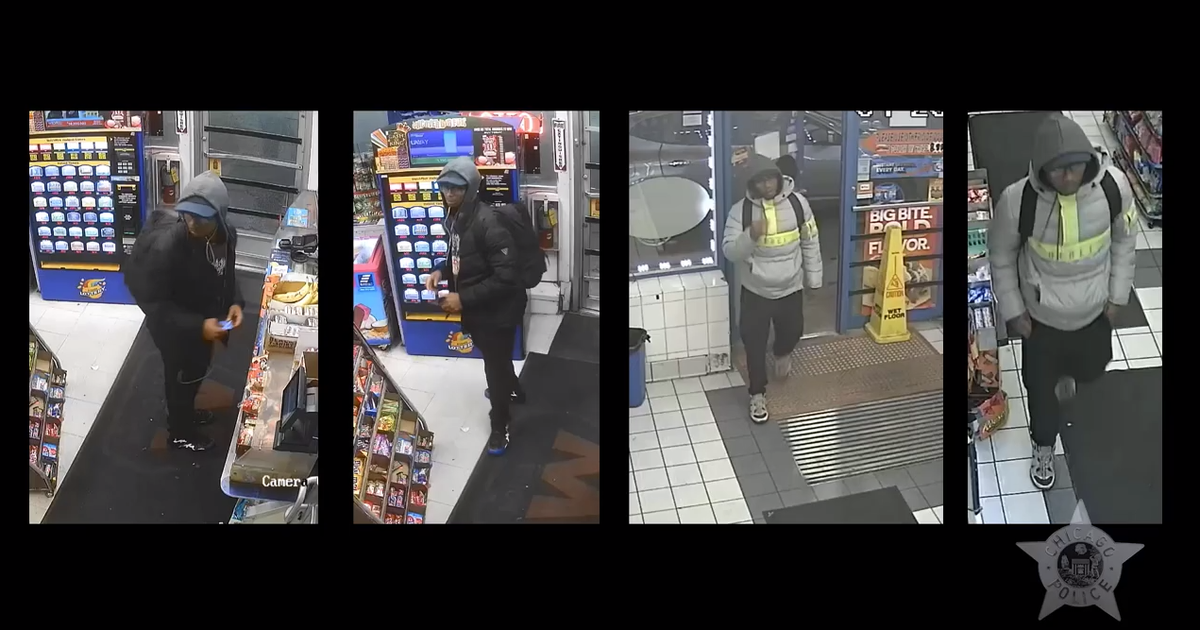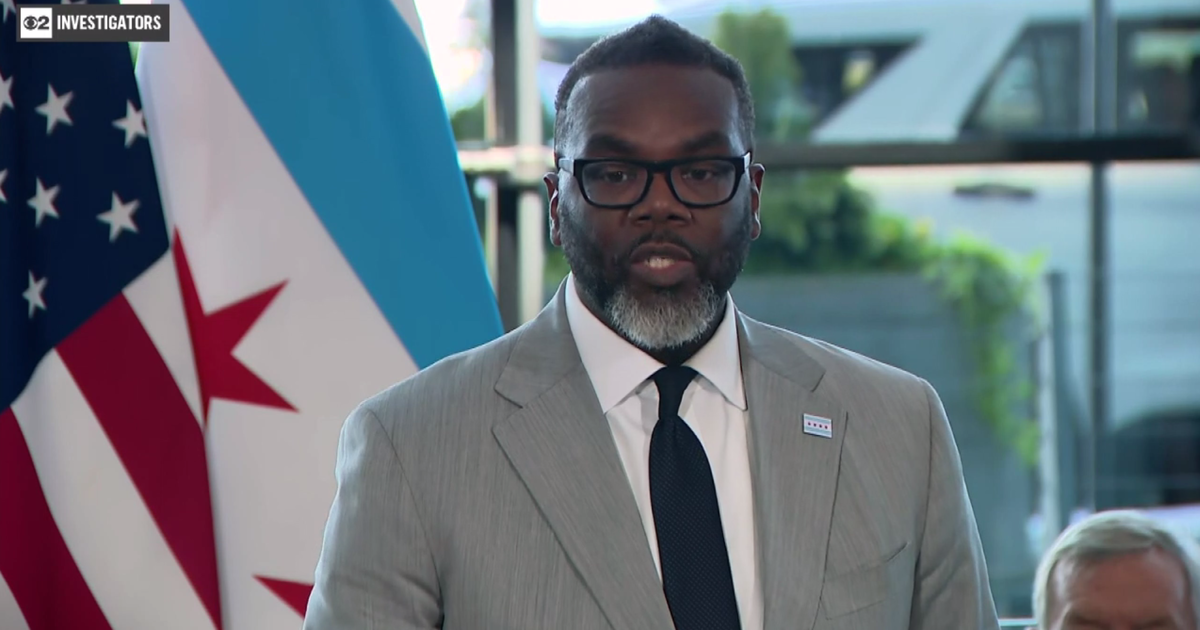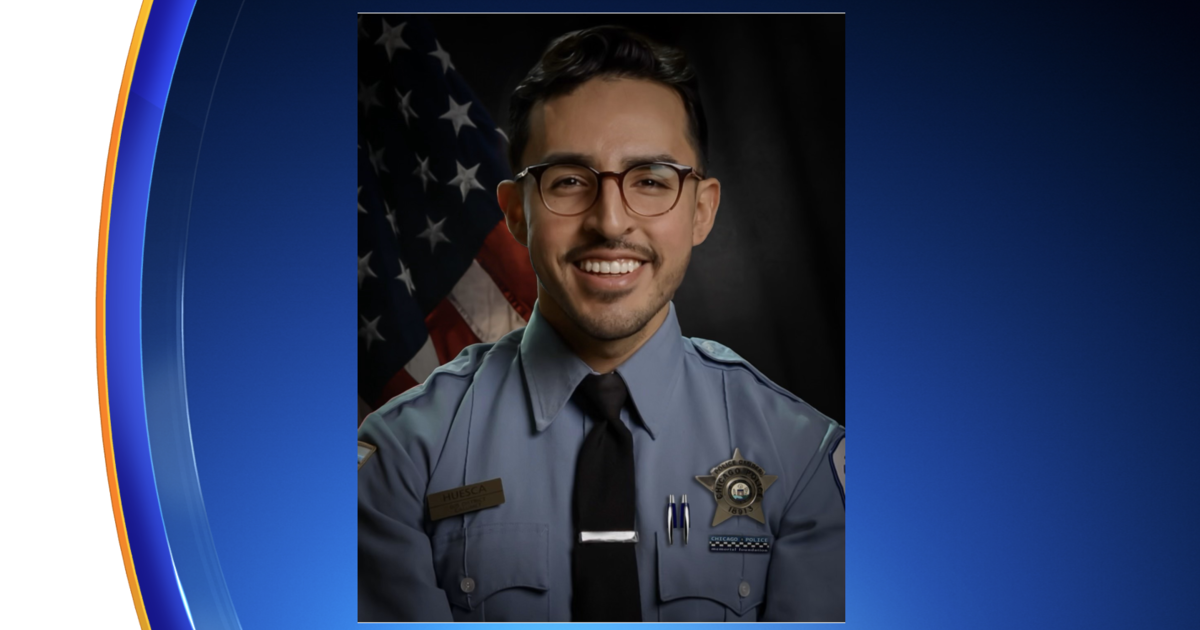New Report On Chicago Police Consent Decree Shows Some Progress On Reforms, But Still Faults Missed Deadlines And Inaccurate Data
CHICAGO (CBS) -- It's report card day for the Chicago Police Department. Due to past failures, they get graded twice a year by the federal government on progress toward court-ordered reforms.
Today's results? Incomplete.
CBS 2 Investigator Megan Hickey reports Police Supt. David Brown put his own spin on the report Friday afternoon.
While CPD only hit 26 of their 51 deadlines for the first half of the year, Brown said that doesn't mean the work isn't being done. He said they've made more ground on bringing an end to abusive policing practices than ever before.
Brown said this is the best progress report they've had so far, and they're ahead of other American cities who have gone through similar reforms in the past.
While Independent Monitor Maggie Hickey and her team, in a 1,000-page report released Friday morning, acknowledged some strides by CPD in the first six months of this year, a letter from the Illinois Attorney General's office in the report's appendix said, "the ultimate goal of establishing community trust in CPD remains far in the distance."
One of the major issues eroding that trust involves Chicago Police missing a critical September deadline for a new, formal policy restricting foot chases.
That deadline came in the wake of high-profile police shootings of 13-year-old Adam Toledo and 22-year-old Anthony Alvarez; both following foot pursuits.
Hickey's report said CPD disabled its foot pursuit data dashboard, and revealed that the data it had collected over the past two years was deeply flawed. So a temporary policy is still in place for now.
Hickey is also concerned about staffing in the division that handles data.
Brown said the department is working to make sure the data issue is corrected. CPD is currently a month past the foot pursuit policy deadline.
A scathing Justice Department report in 2016 found systemic abuses by the Chicago Police Department against minorities, including officers routinely using excessive force against African Americans and Hispanics.
The Justice Department report called for the courts to oversee changes to the department's policies and practices. When the Trump administration balked at the idea of a consent decree, Illinois Attorney General Lisa Madigan filed a lawsuit against the Chicago Police Department and hammered out a deal with the city.
The consent decree requires the department to review use of force policies every year, track foot pursuits and document every time an officer points a gun at someone. Anonymous complaints against officers must be investigated; and officers are prohibited from using stun guns when suspects are running away, or from firing their guns at moving vehicles.
At its core, the consent decree is about addressing abusive policing in communities of color, but Hickey's report, the fourth since the signing of the consent decree, again points to lack of an overarching community engagement in reforming the department.
In response, Chicago Police said they've expanded the Neighborhood Policing Initiative to 10 police districts, and they are enhancing officer-supervisor ratios for more oversight.
Hickey said she's also keeping tabs on police staffing.
During the first six months of this year, 363 officers have left the Chicago Police Department, including the Deputy Chief of CPD's Bureau of Crime Control.
In all, more Chicago police officers retired between January and June of this year than retired in all of 2018.
In response, CPD said they've created their first-ever recruitment and retention team to try to make up for it.
Brown acknowledged that there' been about a 1.5 percent increase in officer attrition, but he considers it a challenge and an opportunity to change the culture of CPD.
"New officers can be hired that are more diverse. New officers can be hired that are trained much better because we have these new policies in place. And I wouldn't leave out supervision. It's a critical aspect of ensuring our transformation occurs and it's sustained," Brown said.
In a joint statement, Mayor Lori Lightfoot and Brown said:
While there has been progress in the CPD's reform efforts, we know there's more to do. The City and CPD remain committed to fulfilling not only the requirements delineated by the consent decree but will go above and beyond what is outlined to Create transformative and lasting reform within the Department. The consent decree is meant to serve as the floor, not the ceiling, for Chicago's police journey to true reform. Our shared efforts to achieve compliance with the consent decree is not just about checking off boxes and fulfilling the minimum requirements, it is about creating a better police department, one that the people of Chicago can be proud of.
To clarify, the federal court ultimately determines whether the city and CPD are following the requirements of the consent decree and the court is guided by Hickey's semiannual important progress reports.
The latest report from Hickey was the 4th of at least 10 expected during the first five years CPD is being monitored for compliance with the consent decree. At this rate, CBS 2 asked Brown if he really expects to hit all the benchmarks that are required by the end of those five years.
"This commitment we have is real, and we are really pushing to come into compliance, to continue our progress," he said.



